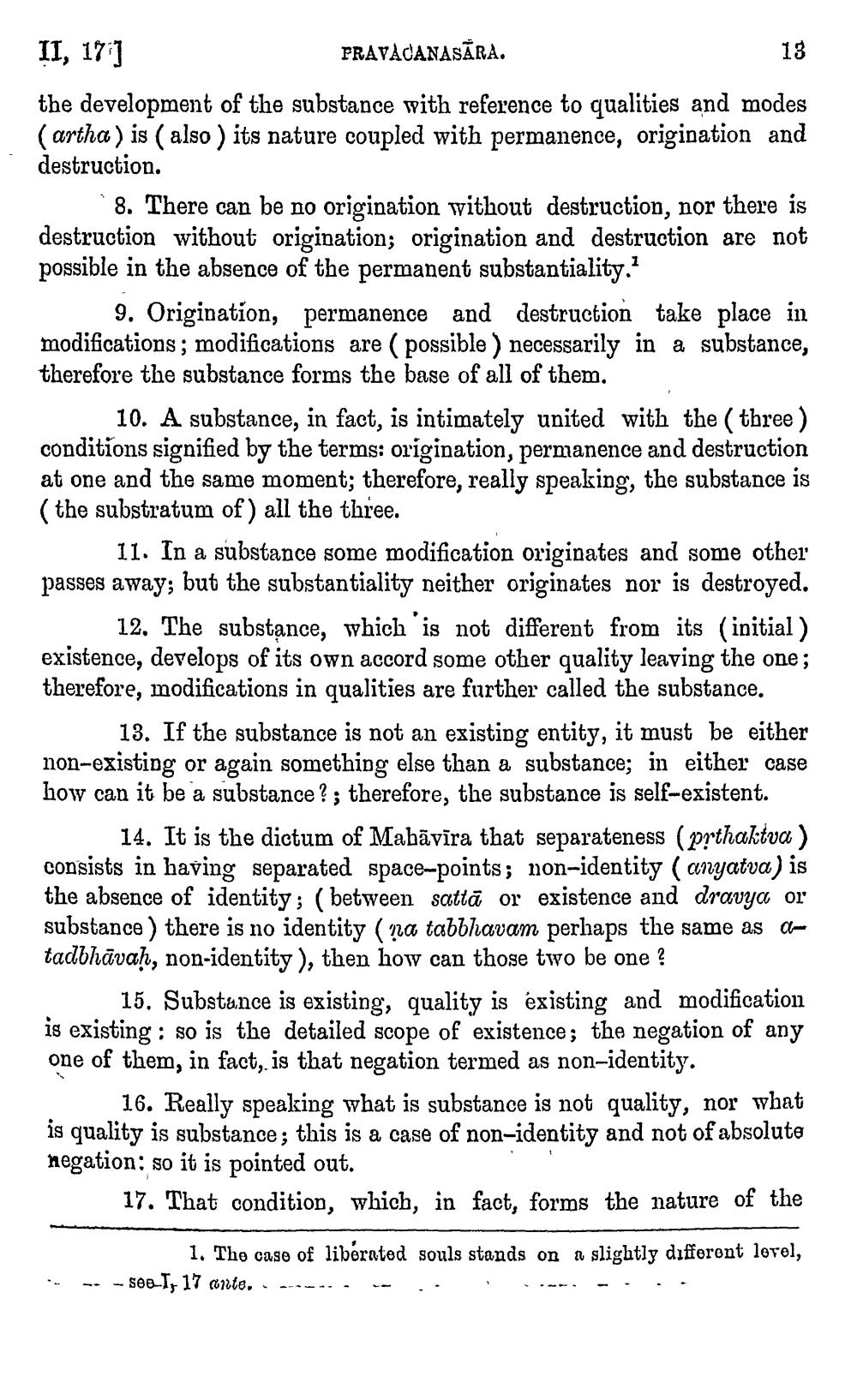________________
II, 197] PRAVACANASĂRA.
13 the development of the substance with reference to qualities and modes (artha) is (also ) its nature coupled with permanence, origination and destruction.
8. There can be no origination without destruction, nor there is destruction without origination; origination and destruction are not possible in the absence of the permanent substantiality.
9. Origination, permanence and destruction take place in modifications; modifications are ( possible ) necessarily in a substance, therefore the substance forms the base of all of them
10. A substance, in fact, is intimately united with the three ) conditions signified by the terms: origination, permanence and destruction at one and the same moment; therefore, really speaking, the substance is (the substratum of) all the three.
11. In a substance some modification originates and some other passes away; but the substantiality neither originates nor is destroyed.
12. The substance, which is not different from its (initial) existence, develops of its own accord some other quality leaving the one; therefore, modifications in qualities are further called the substance.
13. If the substance is not an existing entity, it must be either non-existing or again something else than a substance; in either case how can it be a substance?; therefore, the substance is self-existent.
14. It is the dictum of Mabāvīra that separateness (p?thaktva ) consists in having separated space-points; non-identity ( anyatva) is the absence of identity; (between sattā or existence and dravya or substance) there is no identity (20 tabbhavam perhaps the same as a tadbhāvaḥ, non-identity), then how can those two be one ?
15. Substance is existing, quality is existing and modification is existing : so is the detailed scope of existence; the negation of any one of them, in fact, is that negation termed as non-identity.
16. Really speaking what is substance is not quality, nor what is quality is substance; this is a case of non-identity and not of absolute negation: so it is pointed out.
17. That condition, which, in fact, forms the nature of the
1. The case of libérated souls stands on a slightly different lovel, ---SOBI 17 ante.
. . . . . .- - .
-




